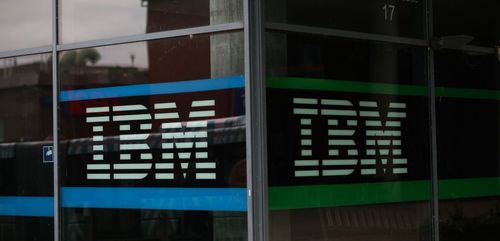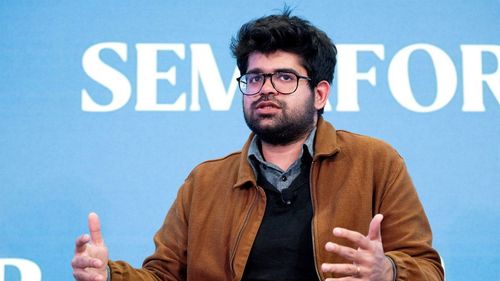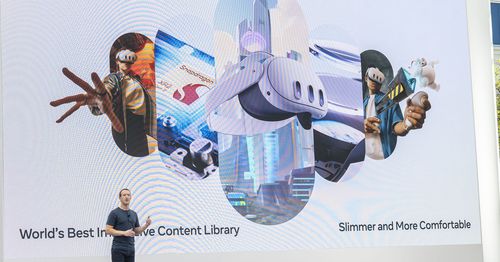EarliTec Diagnostics secures $21.5M in funding to advance early autism diagnosis
In the United States, a striking statistic from the CDC reveals that one in every thirty-six children is diagnosed with autism. Highlighting the significance of early diagnosis, studies have pointed out that it greatly enhances developmental outcomes for children. Rising to the challenge, EarliTec Diagnostics has recently secured significant funding to further develop its innovative solution designed to support clinicians in diagnosing children as early as 16 months old.
Based in Atlanta, EarliTec Diagnostics has developed a pioneering approach that has received FDA authorization. This method involves engaging children in a 12-minute session where they watch videos and interact socially on a screen. Throughout this period, the system utilizes artificial intelligence to track and analyze the child's eye movements. Distinctive patterns observed indicate that children with autism engage differently with the content compared to those without the condition.
The recent completion of a $21.5 million Series B funding round, co-led by Nexus NeuroTech Ventures and Venture Investors, positions EarliTec for significant expansion. Nexus NeuroTech Ventures specializes in investments within the brain disorder innovation space, while Venture Investors focuses on transformative healthcare enterprises. Currently, EarliTec's technology is utilized by clinicians in six states across the U.S., covering a modest network of eight practitioners.
EarliTec Diagnostics' CEO, Tom Ressemann, shared with TechCrunch the challenges inherent in traditional autism diagnosis methods, which often involve prolonged assessments and suffer from extensive waitlists. In contrast, EarliTec's quicker, more accessible test aims to expedite diagnosis, fitting seamlessly into various settings such as homes, clinics, or schools — all with the convenience of tablet technology. This approach not only benefits the child but also alleviates stress for the parents.
The importance of extending the reach of EarliTec's technology and continuing to innovate within the sphere of diagnosis and treatment was underscored by Ressemann. Plans are in place to leverage the recent influx of capital for research aimed at broadening the diagnostic age range and enhancing treatment methodologies. Amid growing interest from venture capital firms in autism-focused healthcare innovations, a trend partly attributable to heightened awareness and understanding of the condition's prevalence, EarliTec's journey represents a beacon of hope. With autism diagnosis rates having significantly increased, the technology's ability to address this widespread challenge reflects a compelling opportunity for both societal impact and investment returns.
 Why Meta is looking to the fediverse as the future for social media
Why Meta is looking to the fediverse as the future for social media Microsoft’s Surface and Xbox hardware revenues take a big hit in Q3
Microsoft’s Surface and Xbox hardware revenues take a big hit in Q3 Augment, a competitor of GitHub Copilot and backed by Eric Schmidt, emerges from stealth mode with a launch of $252 million
Augment, a competitor of GitHub Copilot and backed by Eric Schmidt, emerges from stealth mode with a launch of $252 million IBM advances further into hybrid cloud management with its $6.4 billion acquisition of HashiCorp
IBM advances further into hybrid cloud management with its $6.4 billion acquisition of HashiCorp Perplexity is raising over $250 million at a valuation of between $2.5 billion and $3 billion for its AI search platform, according to sources.
Perplexity is raising over $250 million at a valuation of between $2.5 billion and $3 billion for its AI search platform, according to sources. Apple announces May 7 event for new iPads
Apple announces May 7 event for new iPads Gurman: iOS 18 AI features to be powered by entirely On-Device LLM, offering privacy and speed benefits
Gurman: iOS 18 AI features to be powered by entirely On-Device LLM, offering privacy and speed benefits Meta aims to become the Microsoft of headsets
Meta aims to become the Microsoft of headsets Tinder introduces a 'Share My Date' feature allowing users to share their date plans with interested friends
Tinder introduces a 'Share My Date' feature allowing users to share their date plans with interested friends This is Tesla's effective solution for the recalled Cybertruck accelerator pedals
This is Tesla's effective solution for the recalled Cybertruck accelerator pedals
